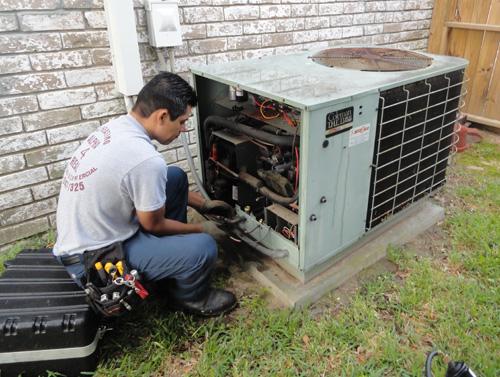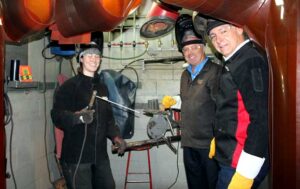One of the most important things every homebuyer should look at is the heating, ventilation, and air conditioning (HVAC) system. Essentially, your home’s HVAC system accounts for nearly half of home energy costs and can cause any number of problems if it isn’t working properly. You can save an enormous amount of time and money by understanding how an HVAC system works and how to maintain it.

Know Your HVAC System
The best starting point is knowing what kind of system is installed in your new home. Professional HVAC techs understand how these things work due to an HVAC training program they took along with their years of experience. But it doesn’t hurt the homeowner to learn a few things as well.
Most homes are heated by a furnace and cooled with a whole-house air conditioner. This system heats and cools using a compressor, condenser, coils, and ducts.
Another system is known as a boiler system. A boiler heats the home through hot water rather than air. It does not have a central cooling system. Therefore, homeowners would need to manage cool air with window units or a mini-split system.
There is also a ductless heating and cooling system that heats and cools zones within the home, eliminating the need for a whole house system.
Check It Out
Pay attention to the condition of the HVAC system and how you feel walking through the home. Rust and condensation on ducts and pipes may indicate that the unit is leaking, old, or not well-maintained. Check for air leaks in the ductwork that might increase energy costs.
Take note of any strange noises and uneven temperatures throughout the house. Both of these may point to an issue with the system or insulation. When buying a new home, you should also have the HVAC inspected for less visible problems.
Ask for Paperwork
Don’t be shy about asking how old the system is and how often it has been maintained. The average lifespan of an HVAC system is between 15-30 years, so it varies.
Maintenance work orders will also have any major repairs that were required. Knowing this information will help you plan for your energy bills and let you know where the unit falls in comparison to other available units. If the HVAC needs extensive repair or replacement, you may be able to negotiate the price or repairs with the seller.
Maintenance and Repairs
HVAC systems should be maintained annually by a qualified service technician. Replace your filter at least every three months. You may need to replace it more often if you have pets, or allergies, or run your HVAC more than six months out of the year.
If your air conditioner isn’t making your home cool enough, clear the outdoor compressor of plants and debris. You should also check the insulation that covers the refrigerant lines going from the compressor into your home. Call an HVAC technician if you see leaking or hear strange noises, or if the unit is getting power but not turning on.
Your home’s HVAC system will account for a large portion of your energy bill and affect the comfort of your new home. Knowing the state of your HVAC system will allow you to prepare for upcoming costs.



